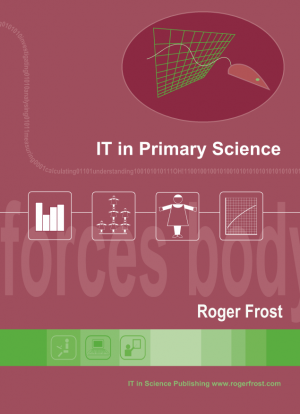IT in Primary Science: Difference between revisions
No edit summary |
No edit summary |
||
| Line 29: | Line 29: | ||
|format=Online book - licensed to ORBIT | |format=Online book - licensed to ORBIT | ||
|resources= The resource is available in a number of formats: | |resources= The resource is available in a number of formats: | ||
* as a printable PDF | * as a printable PDF - 132 pages [[file:IT in Primary Science.pdf]] | ||
* as an editable Word document - 150 pages [[file:It_In_Primary_Science.doc]] Use to extract individual pages. Please note that this is a large file. | * as an editable Word document - 150 pages [[file:It_In_Primary_Science.doc]] Use to extract individual pages. Please note that this is a large file. | ||
* as | * as a web page on this wiki http://orbit.educ.cam.ac.uk/resources/books/IT_in_Primary_Science/index.htm | ||
Latest revision as of 16:25, 19 November 2012
Lesson idea. This very popular guide, now released below, provides content for those keen to teach science using information technology as a tool which is also of interest to primary school teachers who need to teach pupils a prescribed set of IT skills. This book includes countless ideas for using IT tools in science and provides practical examples of how they can work to good effect. Ideas are classified as follows:
* Communicating – using graphics, publishing and word processing tools.
* Drawing graphs and doing calculations – using a spreadsheet or graphing program.
* Classifying things – sorting sets of animals or plants – using a branching database.
* Measuring in science – using electronic sensors and data loggers.
* Playing with science ideas – modelling using a spreadsheet, simulation or animation.
* Collecting information – using the Internet.
The book pre-dated the use of the internet for communicating and research, hence the use of the term 'IT' (and not 'ICT') in primary science.
Teaching approach. This book is a compendium of lesson ideas with ICT(i) as a key focus for use in inquiry(ta) based learning and the scientific method(ta). It offers opportunities for use of group work(ta) and collaboration(ta) as well as whole class(ta) questioning(ta). (edit)
| Resource details | |
| Title | IT in Primary Science |
| Topic | [[Topics/ICT|ICT]] |
| Teaching approach | [[Teaching Approaches/Questioning|Questioning]], [[Teaching Approaches/Whole class|Whole class]], [[Teaching Approaches/Group work|Group work]], [[Teaching Approaches/Inquiry|Inquiry]], [[Teaching Approaches/Collaboration|Collaboration]], [[Teaching Approaches/Scientific method|Scientific method]] |
| Learning Objectives |
|
| Format / structure | Online book - licensed to ORBIT |
| Subject | [[Resources/Science|Science]] |
| Age of students / grade | [[Resources/Primary|Primary]], [[Resources/Age 7-11|Age 7-11]]
|
| Useful information | Book data: ISBN 0952025736, 132pp spiral bound. First published as ISBN 09520257-0-1 in 1994, revised x 14 to 2003, £14.95, see Amazon: http://www.amazon.co.uk/Roger-Frost/e/B0034PHJ5M. Author: Roger Frost
|
| Files and resources to view and download | The resource is available in a number of formats:
|
| Acknowledgement | This resource was created by Roger Frost, and is under the ORBIT's CC licence. |
This resource was created by Roger Frost, and is under the ORBIT's CC licence.








